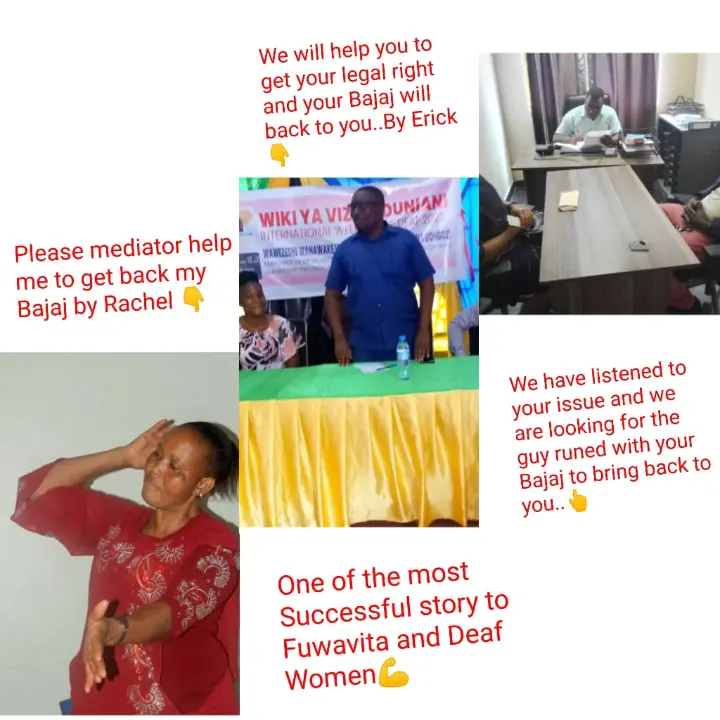At ESS Creative and Legal Foundation, we believe that every person deserves access to justice, regardless of their physical abilities or circumstances. Our approach centers on empowering local leaders by building their capacity to resolve disputes in truly inclusive environments.
Rachel's Story: When Communication Barriers Block Justice
Rachel, a hard-of-hearing entrepreneur, faced a devastating setback when her employee—a motorbike driver—refused to remit earnings from her public transportation business and claimed ownership of the vehicle she had purchased with a government loan. What should have been a straightforward dispute resolution became a year-long struggle due to communication barriers between Rachel, the police, and the defendant.
Traditional mediation failed because the system wasn't designed to accommodate Rachel's needs. The police couldn't effectively communicate with her, and without proper interpretation services, the mediation process excluded her from meaningful participation in her own case.
The Solution: Inclusive Mediation in Action
When Rachel's membership organization, FUWAVITA, referred her to ESS, we immediately identified the core issue: the lack of an inclusive mediation environment, which led to communication barriers and made mediation unsuccessful.
We provided Rachel with an experienced Sign Language interpreter, Bosco Muna, from FUWAVITA and accompanied her to the office of the Chairman of Mwananyamala Street. But we didn't stop there—we connected virtually with the chairman to guide him through conducting an inclusive mediation process that would ensure all parties could participate fully.
Results
Within just one day, Rachel's case was resolved. After a full year of unsuccessful attempts through traditional channels, our inclusive approach enabled her to recover her motorbike and resume her business operations.
Rachel's experience shows what becomes possible when local leaders have the right support and guidance to make their mediation processes truly inclusive. When we work together to remove barriers, communities can resolve disputes more effectively and ensure everyone has a voice in the process.
When mediation becomes inclusive, justice becomes possible.
